Don't obsess over a true calling
We don't have a single reason to live
When my partner was 8 and asked what he wanted to be as a grown-up, he wishfully answered "Red Power Ranger". Meanwhile, across the Atlantic, I already knew at the same young age what I would spend the next 20 years striving to be: "a marine biologist".
And strive I did. I applied to university, interned, and volunteered. I did two master's. I moved to remote islands, left people behind, and lived in not-so-great places to fulfill what I felt was my true calling. But no job or place ever felt right, and never brought the sense of final accomplishment I sought. I was always looking for that place and that position that would finally make everything make sense.
It never did. Now, it's just a fun fact about me: I used to be on a boat night and day researching dolphins. As I wrote before, maybe I was just unlucky with my job experiences. It is possible that I would still be on the same path if I had better ones. But the truth is, there is more to that.
During my 20s, I learned that there were no jobs that would magically make me 100% happy and satisfied. This is simply because we are never 100% happy and satisfied. That's not how humans experience the world. We are always searching for that one thing that will finally make everything better. Sorry to be the one to tell you if you don't know it yet: there's no such thing.
But most of all, I resent the idea of a true calling. A single path designed for you by God or the universe that will bring you fulfillment and money (and should be economically productive, of course).
The topics we are interested in are far too numerous to be limited to one. We want to experiment and learn. We want to be excited and challenged. Sometimes, we need a change. We can't be the same person throughout our whole lives; we will get bored.
Why some of us we don’t have one true calling?
Although adults love asking what we want to be (do they still do that?), as kids, we don't really know; we just do what we want. We write a book about a girl on an adventure; we prepare a whole play with our cousins to present to our parents; we film a fake commercial for Coca-Cola; we build our own zipline; and we make up song lyrics. Why, then, would it make sense to choose one direction when we are 18 that we have to stick with for the rest of our lives?
I was prompted to write this text after watching this TED talk that has been on the internet for a while and discusses true calling. It has a compelling premise: a flashy topic (“Why some of us don’t have one true calling?”), Emilie Wapnick is a charismatic speaker, and she makes a persuasive point. As she talked, I could relate more and more to what she was saying. But her conclusion, I believe, is just plain wrong.
She describes something normal for anyone over 20. The audience seems to approve and relate to the questions she raises. The main one is the difficulty of fitting into only one career when we have so many different interests. How do you choose a profession to follow your whole life?
Humans are very flexible creatures. We start with endless possibilities. There’s nothing in our DNA that dictates whether we will be a hunter-gatherer in an Amazon tribe, a writer, or a president. We are, by design, interested in multiple things. Look at young children and how they approach any task you present them with. Unless they are in an unfriendly mood, they will try it out. Even if it is a task they have never done before and have no idea how to proceed.
We are ever-changing creatures. Our wishes and desires change constantly. The world around us changes as well. Understandably, we will follow multiple paths and have multiple interests. Instead of acknowledging that, she presents her own category of people: “multipotentialite”.
For her, either you are a multipotentialite or you are a specialist. But I reject those as real categories. If there is such a thing as a multipotentialite, we are all multipotentialite.
Not everything is about work
Many people live pretty happy and fulfilled lives with specialized work. I've been around many scientists who focus their lives on the smallest and most specific things. For example, the life cycle of whale parasites or anti-inflammatory compounds in algae.
But work isn't everything, and careers aren't either. Even if you have met someone who has been doing the same specialized work for 40 years, I'm pretty sure they enjoy other activities too. Maybe they do some woodwork, read hundreds of philosophy books, know all about the NBA, and excel at making sushi. Maybe they knit and go kayaking?
Emilie Wapnick fails to acknowledge how sometimes our careers and jobs cannot bring us all that we are looking for. And most of all, she pushes the narrative that confounds callings with careers, while hobbies and activities outside of our offices are vital for our well-being. In her TED talk, she suggests we can have many interests, as long as we can turn them into an interconnected passion to fuel our careers.
She seems to forget that most people will need to work in positions that are not completely fulfilling for them. It is a privilege to have the financial and social means to pursue our interests. However, that doesn't mean most people are only interested in one thing. They can and will explore other areas in their free time without necessarily turning those into future career or financial prospects.
A true problem
A far more interesting conclusion to the TED talk would be how the idea of “a true calling” damages our mental health in so many distinct ways.
Answering "Red Power Ranger" probably brought laughs, while "marine biologist" was met with an approving smile and follow-up questions. Adult approval may seem insignificant, but it can influence our perceptions and decisions. It can keep us craving outside approval and validation for what to do with our productive time.
This belief in a true call frustrates professionals. It comes from religious beliefs. It is what you are meant to do in your life to give it meaning. But how do we know what activity will give our lives meaning? And what if that is unprofitable? Why do we so closely associate life's meaning with professional goals?
This belief creates the misconception that work must be meaningful. In a world where appearances are so central and every aspect of your life should be Instagram-worthy, fulfilling careers are difficult to find. How frustrating is it to graduate and realize that we cannot all have amazing jobs that change the world? Or that doing what you love won’t suddenly make everything better?
I think many quarter-life crises are connected to this frustration.
A career should not be the only opportunity to follow our passions. The “true calling" idea places a lot of pressure on work and our choices. It emphasizes a very capitalistic view of life, in which a career is at the core of everything we do. Being a “loser” means failing to successfully pursue the one thing we are on this earth to do. According to this idea, if you don't find yourself in a job that is your "call", you should either get another one or be miserable. And that is untrue. A job can be just a job. A way of earning money while enjoying all the other things we like in our free time.
Life is unpredictable and full of lucky or unlucky breaks. Some of our interests will gradually become part of a career path as time goes on—or maybe not. And that is OK.
And weirdly enough, although society asks us to choose as kids what we will become when we grow up, the working environment is turning in the opposite direction. There is an increasing demand for workers with a broad range of skills (it reduces costs, after all).
Hiring managers ask for a seemingly endless list of abilities. Rather than looking for a specific set of skills, companies now prefer people with a wide range who can combine different areas of knowledge. The majority of them are not taught in a formal university course. So, being “multi” is not even a choice anymore. You do it, or you are out.
As opposed to recognizing the danger of a true call and finding solutions, we are just substituting it for a new market need. We are internalizing that need to be “multi” and pursuing increasingly sought-after skills ourselves. That doesn't make us special or a brand-new category of humans. It makes us even more overworked and stressed. That's all.
The Burnout Society by Byung-Chul Han
Byung-Chul Han explores the effects of neoliberalism on labor and the workplace. He argues that the emphasis on flexibility, competition, and individual responsibility in neoliberal capitalism has transformed work into a form of self-exploitation. In this context, individuals become their own oppressors, constantly striving to meet the demands of a competitive market. The blurring of boundaries between work and personal life further exacerbates the pressure and intensifies the risk of burnout.
Booksmart (2019)
"Booksmart" is a coming-of-age comedy film that portrays two high-achieving best friends, Amy (Kaitlyn Dever) and Molly (Beanie Feldstein), who, on the eve of their high school graduation, realize that their dedication to academics and avoiding socializing has caused them to miss out on the fun and experiences of adolescence. Determined to make up for lost time, they embark on a wild night of party-hopping and self-discovery.
Superstore is somewhat of a weird sitcom, but it's worth watching. Originally aired from 2015 to 2021, the series takes place in a fictional big-box store called "Cloud 9" and provides a hilarious and satirical look at the lives of the store's employees as they navigate the challenges and absurdities of working in the retail industry. It satirizes Walmart-like stores in an interesting way, talking about worker's rights and unions.



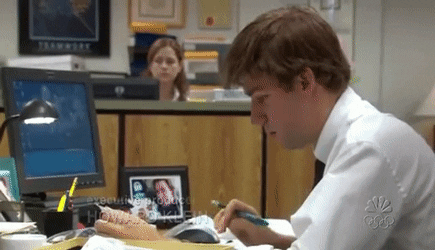
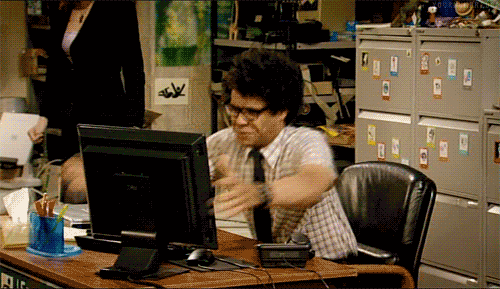

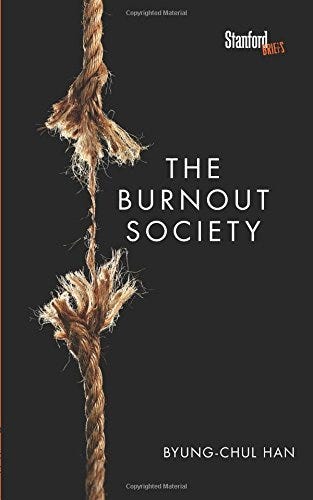

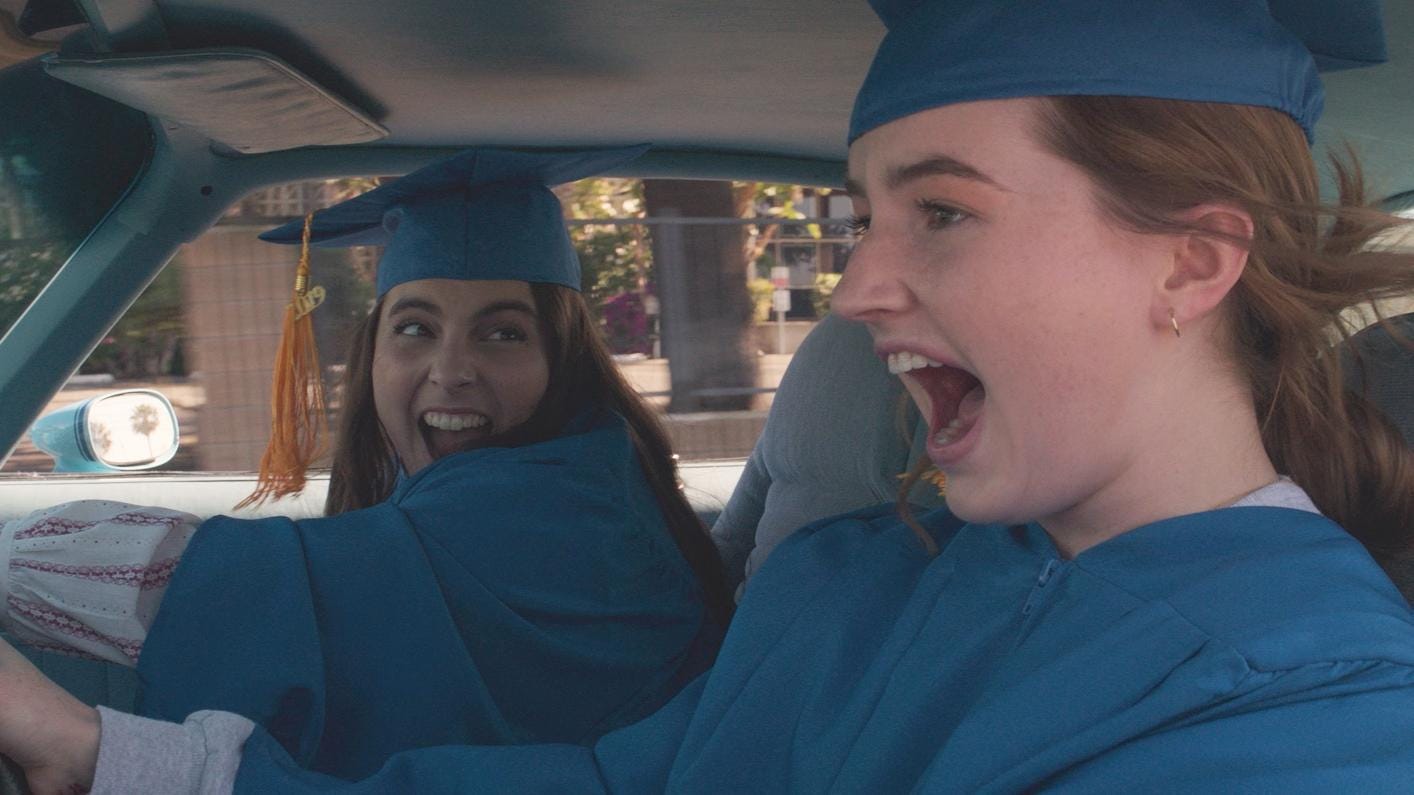

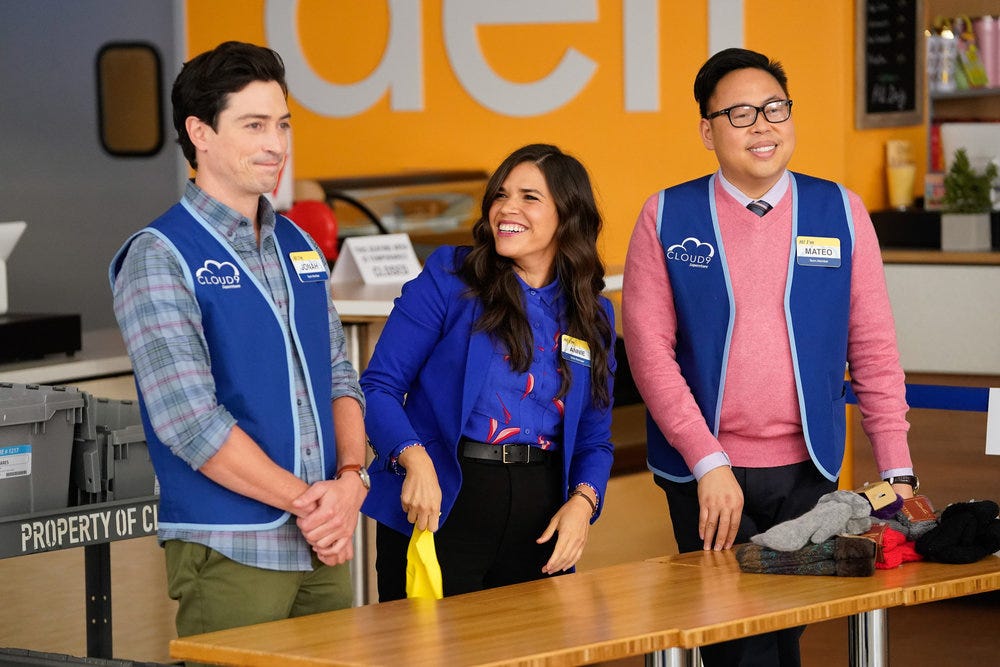
This is something I had to come to terms with. I attended a Christian college, and they literally had a center for “calling and career.” The idea that your life’s calling (what does that even mean?) was tied up neatly with your career was the theme for everything. It was crushing when I graduated in 2008 with a liberal arts degree and the economy was in the toilet. My life is completely different now, but I can see how this mindset is very damaging and sets people up for a lifetime of disappointments and low self esteem.
"Why, then, would it make sense to choose one direction when we are 18 that we have to stick with for the rest of our lives?"
I started out wanting to make music videos. Studied film. Then made documentaries and television ads. Then pivotted into web design then rolled into software development and now user experience design while pining after writing. All while my wife thinks I should really be painting.
Thank you for helping me reframe that (again) as a positive and playful meander. Rather than a wasteful lack of focus.
It's so easy for us creatives to be hard on ourselves about an inefficient route or time wasted playing. 💜